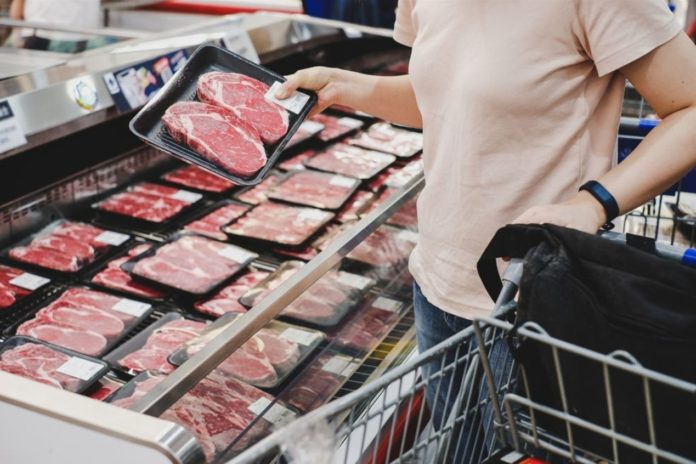A new study headed by the Cleveland Clinic sheds light on how a diet high in red meat raises the risk of cardiovascular disease.
Dr. Stanley Hazen previously discovered that TMAO (trimethylamine N-oxide), a result of gut bacteria digesting specific nutrients found in red meat and other animal products, raises the risk of heart disease and stroke.
The new findings provide a more complete picture of the two-step mechanism by which gut microorganisms transform the nutrient carnitine into TMAO, an atherosclerosis- and blood clot-promoting chemical, following consumption of a red meat-rich diet.
“These new studies identify the gut microbial gene cluster responsible for the second step of the process that links a red meat-rich diet to elevated cardiac disease risks,” says Dr. Hazen, study lead.
“This discovery helps point us towards new therapeutic targets to prevent or reduce diet-associated cardiovascular disease risk.”
Results published in the Journal of Clinical Investigation by Dr. Hazen in 2018 demonstrated that in the gut, dietary carnitine is transformed into TMAO through a two-step, two-microbe conversion process. A molecule known as yBB is an intermediate metabolite in this process (gamma-butyrobetaine).
Several gut microorganisms can convert dietary carnitine to yBB, but only a few can convert it to TMA, the precursor of TMAO, according to Dr. Hazen.
“In omnivores, Emergencia timonensis is the primary human gut microbe involved in the transformation of γBB to TMA/TMAO. Conversely, long-term vegetarians and vegans have very low levels of this microbe in their gut and therefore have minimal to no capacity to convert carnitine into TMAO.”
With the use of more than 3,000 patient samples and a wealth of clinical data, the researchers looked at the link between fasting plasma yBB levels and disease outcomes. Higher yBB levels were linked to heart disease and significant adverse events such as death, nonfatal heart attack, and stroke.
In order to figure out how yBB is linked to the things that happen in patients, the researchers looked at fecal samples from mice and people, as well as preclinical models of artery damage. They discovered that adding E. timonensis to the mix completes the conversion of carnitine to TMAO, raises TMAO levels, and improves blot clot potential.
The scientists employed sequencing to find the key gut microbial gene clusters. The gbu (gamma-butyrobetaine utilization) gene cluster, which includes six genes, was called after its newly identified function. They discovered that when yBB is present, all six genes in the gbu gene cluster express more, and that four genes (gbuA, gbuB, gbuC, and gbuE) are required for the conversion of BB to TMA/TMAO.
“By studying patient samples, we saw that the abundance of gbuA is significantly associated with a diet rich in red meat and plasma TMAO levels,” adds Dr. Hazen.
“Patients who transitioned to a non-meat diet went on to exhibit reduced gut microbial levels of gbuA. Taken together, this suggests that dietary modifications may help reduce diet- and TMAO- associated cardiovascular disease risk. Likewise, the role of the gbu gene cluster may be worth exploring as a potential therapeutic target.”
Source: 10.1038/s41564-021-01010-x
Image Credit: Getty
You were reading: How to prevent red meat diet-associated cardiovascular disease risk, Study finds
